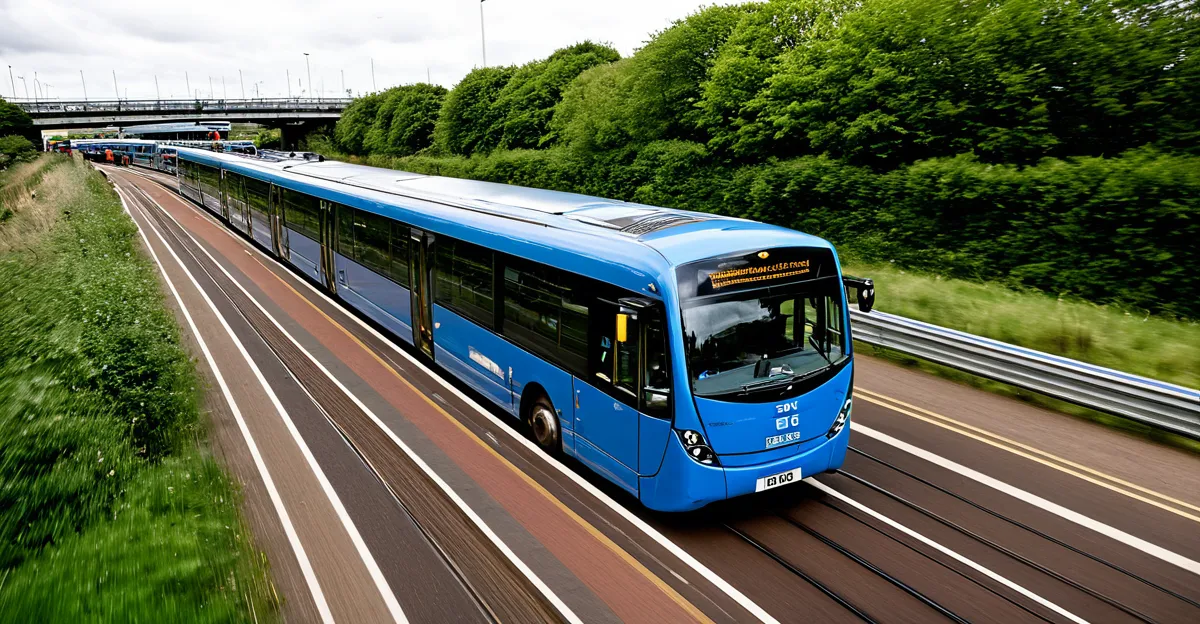Meeting UK Sustainability Goals in Transportation
Understanding the UK sustainability goals for transport involves examining the government’s commitment to achieving net-zero transport emissions by 2050. This ambitious target requires significant reductions in greenhouse gas emissions across all transportation modes, aligning with broader environmental targets set nationally. The UK has outlined key sustainability benchmarks, mandating phased changes such as the ban on new petrol and diesel cars by 2030 and the transition of public transport fleets toward zero-emission vehicles.
Recent regulatory changes have accelerated this shift. For example, the introduction of stricter vehicle emissions standards and expansion of low emission zones in urban areas directly support the reduction of transport-sector pollution. Additionally, policies promoting electrification, alternative fuels, and infrastructure funding are critical to meeting these benchmarks. The government’s approach balances ambitious policy with practical timelines, ensuring that transport sectors progressively align with UK sustainability goals. These measures collectively seek to reduce the carbon footprint, improve air quality, and enable a cleaner, more sustainable transportation landscape over the coming decades.
Also to read : How is climate change influencing UK news reporting?
Initiatives in Public Transport and Rail
The UK is making significant strides in sustainable public transport through several focused initiatives. A major component is the expansion of low-emission and electric bus fleets, which directly reduces urban transport emissions. By replacing older diesel buses with electric or hybrid models, cities achieve cleaner air and lower carbon output.
UK rail initiatives play a crucial role as well. Efforts to electrify and modernize railways enhance efficiency and cut dependence on fossil fuels. For instance, upgrading lines to support electric trains reduces greenhouse gases and aligns with the broader goal of net-zero transport. This modernization also improves rail services, encouraging more people to choose public transit over private vehicles.
Also read : What are the emerging trends in UK news media?
Another innovative approach involves integrating mobility-as-a-service platforms. These systems combine different transport modes into a seamless experience, making it easier for commuters to rely less on personal cars. By promoting public transit accessibility and convenience, these green transit solutions help meet overarching environmental targets. Collectively, these initiatives serve as essential building blocks toward the UK’s commitment to sustainable, low-carbon transport networks.
Road Transport: Electric Vehicles and Alternative Fuels
The rise of UK electric vehicles marks a pivotal shift toward achieving net-zero transport. British road transport sectors are rapidly adopting electric cars, vans, and buses, supported by extensive expansion of charging infrastructure nationwide. Rapid chargers and home units are being deployed to ease range anxiety, one of the main hurdles in the past. The government actively incentivizes this transition by offering grants and tax breaks, encouraging private and commercial users alike to invest in low-emission vehicles.
Complementing electrification, the development of alternative fuels such as hydrogen and biofuels is gaining momentum. Hydrogen fuel cells promise clean, efficient power for heavier vehicles unsuitable for batteries alone. Meanwhile, biofuels derived from sustainable sources provide options for lowering carbon output in existing engine types. These fuels align with the UK’s environmental targets by reducing reliance on fossil fuels and minimizing tailpipe emissions.
Low-emission road transport solutions are supported by a web of policies and public-private collaboration aiming to phase out petrol and diesel vehicles by 2030. This multi-pronged strategy ensures that road transport not only contributes to but accelerates the UK’s overall ambitions in UK sustainability goals and clean mobility transition.
Policies and Regulations Driving Sustainable Transport
Recent UK transport policy advances play a crucial role in accelerating the shift toward net-zero transport. The government has introduced stricter decarbonization strategies such as expanded low emission zones, imposing tighter emissions standards on vehicles, and setting ambitious deadlines like the 2030 ban on new petrol and diesel cars. These measures create clear, enforceable frameworks aligned with broader environmental targets.
Local governments and devolved administrations also actively contribute by tailoring government regulation to regional needs. For example, cities implement congestion charges and incentivize active travel like cycling and walking, complementing national efforts. This multi-layered approach ensures cohesive progress across sectors.
Funding and grants remain pivotal. The government allocates substantial investment toward public transport upgrades, electric vehicle infrastructure, and research in sustainable technologies. Support schemes include clean vehicle grants, charging point subsidies, and financial backing for green transit projects. These policies collectively build an enabling environment for innovation and adoption, helping to transform the entire transport sector.
By integrating national policies with local action and financial incentives, the UK establishes a comprehensive regulatory landscape that effectively drives sustained reductions in transport emissions and advances its UK sustainability goals.
Aviation and Maritime Innovations
Advancing sustainable aviation UK efforts is vital for meeting UK sustainability goals in transport. Airports increasingly adopt sustainable aviation fuels (SAFs)—biofuels and synthetic alternatives designed to reduce carbon emissions significantly compared to traditional jet fuel. These SAFs help in directly lowering aviation’s greenhouse gas footprint, a critical aspect of broader environmental targets.
In parallel, pilot programs test electric and hybrid aircraft, aiming to revolutionize short-haul flights by eliminating fossil fuel use. Though commercial-scale deployment remains in early stages, such innovations offer promising pathways to net-zero transport within aviation.
The maritime sector similarly benefits from UK innovation in green shipping. Initiatives include transitioning vessels to cleaner fuels like green hydrogen and ammonia, which drastically cut emissions. Efforts also focus on improving vessel efficiency through advanced hull designs and propulsion technologies, contributing significantly to carbon footprint reduction in maritime transport.
Collectively, these aviation and maritime advancements support the UK’s comprehensive strategy for decarbonizing transport. They address two traditionally hard-to-abate sectors, reinforcing commitments to net-zero transport and fostering cleaner, more sustainable travel and shipping modes aligned with stringent environmental targets.






